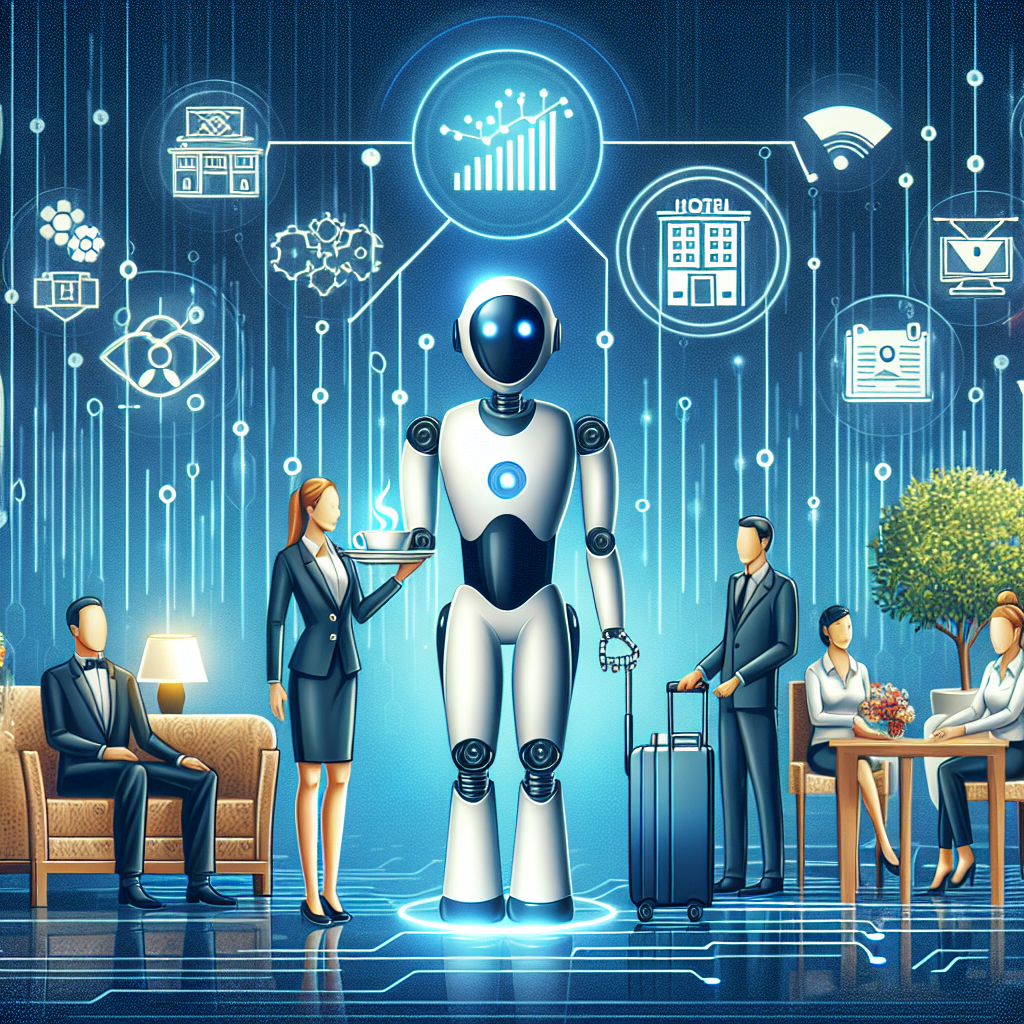The hospitality industry is constantly evolving, with new technologies and innovations being introduced to improve the guest experience. One such innovation that has gained significant traction in recent years is Conversational AI. This technology is revolutionizing the way hotels, restaurants, and other hospitality establishments interact with their guests, providing a more personalized and seamless experience.
What is Conversational AI?
Conversational AI refers to artificial intelligence technologies that enable human-like interactions between machines and humans. This technology is used in various applications, such as chatbots, virtual assistants, and voice recognition systems, to facilitate natural conversations and provide personalized responses.
In the hospitality industry, Conversational AI is being used to improve customer service, streamline operations, and enhance the overall guest experience. By deploying chatbots on websites, mobile apps, and social media platforms, hotels and restaurants can provide instant assistance to guests, answer common questions, and handle simple bookings and reservations.
Virtual assistants, such as Amazon’s Alexa and Google Assistant, are also being integrated into hotel rooms to provide guests with information about the hotel amenities, local attractions, and room service options. These voice-activated assistants allow guests to control room features, such as lighting and temperature, through simple voice commands, enhancing convenience and comfort.
How Conversational AI is Improving Guest Experiences in Hospitality
1. Personalized Interactions: Conversational AI allows hotels and restaurants to deliver personalized experiences to guests by understanding their preferences, habits, and needs. By analyzing data from past interactions and bookings, chatbots can recommend personalized offers, promotions, and services to enhance the guest experience.
2. Instant Support: Chatbots provide instant support to guests, enabling them to get information and assistance 24/7. Whether guests have questions about room rates, check-in procedures, or local attractions, chatbots can provide the answers in real-time, eliminating the need to wait for a human agent to respond.
3. Seamless Bookings: Conversational AI streamlines the booking process for guests by enabling them to make reservations, book rooms, and schedule services through chatbots and virtual assistants. This eliminates the need to navigate through multiple webpages or call a reservation agent, making the booking process more convenient and efficient.
4. Efficient Customer Service: Chatbots can handle a wide range of customer service inquiries, such as room service requests, housekeeping needs, and maintenance issues. By automating these routine tasks, hotels and restaurants can free up their staff to focus on more complex guest interactions, improving overall customer service quality.
5. Increased Revenue: Conversational AI can help hotels and restaurants increase revenue by upselling additional services, promoting special offers, and driving direct bookings. By leveraging data analytics and machine learning algorithms, chatbots can identify upsell opportunities and recommend relevant products and services to guests.
FAQs about Conversational AI in the Hospitality Industry
Q: How does Conversational AI improve guest satisfaction?
A: Conversational AI improves guest satisfaction by providing personalized interactions, instant support, seamless bookings, efficient customer service, and increased revenue opportunities. By enhancing the overall guest experience, hotels and restaurants can build stronger relationships with their guests and drive repeat business.
Q: Is Conversational AI replacing human interaction in the hospitality industry?
A: Conversational AI is not replacing human interaction in the hospitality industry but complementing it. While chatbots and virtual assistants can handle routine tasks and inquiries, human staff are still essential for providing personalized service, resolving complex issues, and building emotional connections with guests.
Q: How can hotels and restaurants integrate Conversational AI into their operations?
A: Hotels and restaurants can integrate Conversational AI into their operations by deploying chatbots on their websites, mobile apps, and social media platforms, as well as incorporating virtual assistants into their guest rooms. By partnering with technology providers and implementing training programs for staff, hospitality establishments can successfully adopt Conversational AI technologies.
Q: What are the potential challenges of implementing Conversational AI in the hospitality industry?
A: Some potential challenges of implementing Conversational AI in the hospitality industry include data privacy concerns, technical complexities, integration issues with existing systems, and staff resistance to automation. To overcome these challenges, hotels and restaurants should prioritize data security, invest in user-friendly interfaces, and provide training and support for employees.
In conclusion, Conversational AI is transforming the hospitality industry by improving guest experiences, enhancing customer service, and driving revenue growth. By leveraging chatbots, virtual assistants, and voice recognition systems, hotels and restaurants can deliver personalized interactions, instant support, seamless bookings, efficient customer service, and increased revenue opportunities. As the adoption of Conversational AI continues to grow, hospitality establishments that embrace this technology will gain a competitive edge and create memorable experiences for their guests.

